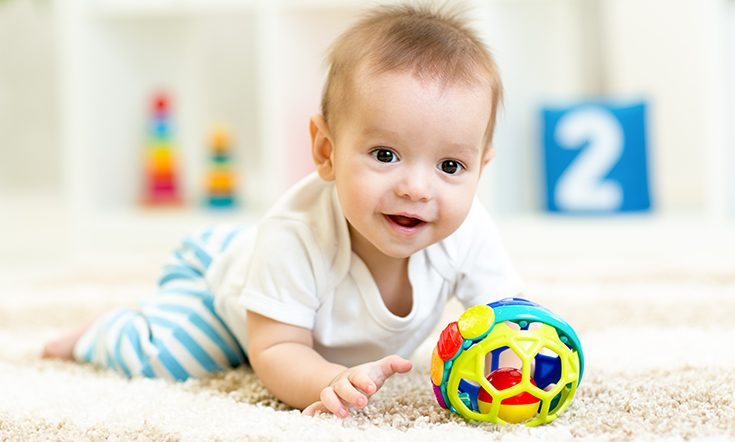

In recent years probiotics have become the new superfood as we are paying more attention to the importance of gut health and research is looking into the benefits of probiotics as a prevention or cure for everything from eczema to allergies.
Globally the probiotic market is growing rapidly and is set to be worth US$96 Bn by 2020 with Australia being one of the largest consumers. But what does this mean for your baby? Are there benefits to giving babies probiotics and are there any side effects? Below we will walk you through everything you need to know about probiotic use for your baby.
What are probiotics and what do they do?
You have probably heard from multiple marketing campaigns about how probiotics are “good” or “friendly” bacteria. Probiotics are in fact live bacteria and yeast that naturally occur in our guts. It’s believed that ingesting them counters the bad, inflammatory bacteria in our systems leading to multiple health benefits.
A baby is actually born with a sterile gut which gradually collects bacteria from their mother’s breast milk or formula and eventually food when they start eating solids. By adulthood, our stomach and intestines are home to more than 400 species of bacteria, good and bad. These bacteria help us digest food and extract nutrients. They also play an important role in our immune system. Periods of sickness, poor diet or taking antibiotics are all things that affect the balance of bacteria in our guts.
What are the different types of probiotics?
There are many different strains of probiotics. The four most common are:
- Lactobacillus
- Bifidobacterium
- Streptococcus
- Saccharomyces boulardii
Each strain is like a separate species and critically has strain-specific effects on the body, but research is still in early stages to understand exactly what each strain can do for us.
Probiotics are sold as powders, pills, liquids and also added to drinks such as yoghurts. They occur naturally in many foods such as yoghurt and sourdough bread and fermented foods such as sauerkraut and kimchi.
What are the benefits of probiotics?
There are many claims about the benefits of taking probiotics including everything from avoiding illness to curing colic. Scientific research into the effects of probiotics has produced mixed results. The majority of studies have been carried out on adults so the results on infants is limited. However, positive results have been seen in the following studies:
- Taking lactobacillus or saccharomyces boulardii alongside antibiotics prevents antibiotic related diarrhoea in infants
- Taking probiotics reduces an episode of infectious diarrhoea by about a day
- A 2013 study showed that the probiotic lactobacillus reuteri reduced the crying time of breastfed babies with colic
- Some studies suggest that giving probiotics to babies can reduce the risk of them developing eczema
Are there any safety concerns around giving probiotics to babies?
The research shows that probiotics for babies are safe and well-tolerated in healthy babies and children. There have been rare cases of probiotic septicemia in immunocompromised babies and adults, but these have been in very sick individuals.
Whilst research on the benefits of probiotics for babies is still limited, there is evidence that shows that certain strains of probiotics can help infants with diarrhoea (and prevent diarrhoea when taking antibiotics). They may also help with colic and eczema prevention without any side effects on otherwise healthy babies. See fact sheet here.
You should always consult your child and family health nurse or GP before adding probiotics to your baby’s diet.























